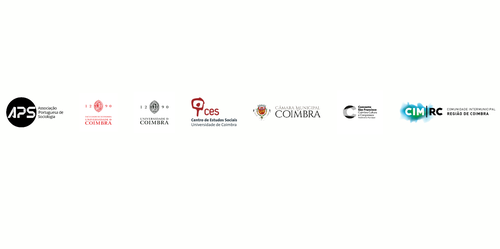Call for papers | Identities, Values and Ways of Life
Coordinators:
Emília Araújo (UM)
Rosalina Costa (UÉvora – CICSNova.UÉvora)
Ways of life, identities and values are central concepts in politically influential sociological practice and have implications both for understanding the present and foreseeing and intervening in the future. This relevance increases even more today, given the characteristics of contemporary societies and politics marked by polarisation and the spread of singularities and extremisms. The speed of change, the power of narratives and discourses in defining identities and the great vulnerability and fragility of forecasts and anticipation, given the conditions and characteristics of the economic, financial and political environments, lead to differential and unequal ways of life, between groups, regions, countries and the world in general. Sociological variables such as gender, race and ethnicity, religion or health condition become the focus of enormous importance and generate hate processes, extremism and crime in diverse contexts.
In addition to the imperative need to question the definitions and boundaries of the concepts that this thematic area embraces, namely that of lifestyles and identities, it is important to clarify and contribute to the description, understanding and explanation of social phenomena, as well as their anticipation, in order to be able to generate more sustainable and healthy living environments.
In effect, the belonging of individuals to certain categories and their situation continue to be fundamental for understanding social dynamics and, mainly, the divisions and polarisations which integrate and attract to the centre, at the same time as they throw out, and leave suspended or waiting. But it is also important to consider the spaces and times created by a new series of belongings linked to mobile lifestyles, in transit and at different speeds, ranging from slowness to urgency.
Thus, ways of life, identities and values interrogate both identities and culture, in spheres such as gender, sexuality and the body; and politics in life as it is structured in the routines of everyday life, work, leisure and free time.
Faced with the circumstances of life in today's hyper-techno-scientific, globalised and individualised world, the questions we raise in this call are simple: how do people live and what do they aspire to, in their universes, spaces and times of life, in the face of these polarised contexts? Why do they live in a certain way and what are their expectations in relation to the various dimensions of life, namely family, education, politics, work and religion, but also in relation to leisure, science and culture? What connection do they establish between their lives and the various levels of political action and intervention, from local to global, from physical to virtual, and what reflexivity do they produce on this articulation from the social and discursive positions from which they position themselves? What do the "classical" variables of sociology have to say about the typology of this reflexivity and what new cleavages emerge from this dialogue? How do institutions and their temporalities relate to individual times and temporalities? To what extent do ways of life reflect the long time of political responsibility expected in a democracy?
These are some questions that lead us to assume that analysing today's ways of life, values and identities from an intersectional perspective becomes a consistent project to characterise a multitude of practices and political processes that take shape in individual lives and are intertwined with profound social transformations regarding the use of science and technology.
In this general framework, the proposal for this Congress of the Portuguese Sociological Association is to debate in the thematic area of identities, values and ways of life thinking about how these concepts can be interconnected, defined and above all become operational in the face of new socio-political realities, also marked by environmental crises and ambivalences, technological evolution, reflection and ethical-social debate.
Here are some of the questions that we selected for the XII Congresso Português de Sociologia under the theme Polarized societies? Challenges for sociology.
We call for the submission of proposals based on reflexivity raised in academic (basic or applied research) and non-academic (applied research, action-research) contexts that allow the presentation and sharing of results of completed research or research in progress, thus contributing to the discussion of identities, values and ways of life.
Regardless of the context of origin, the abstracts will be evaluated by the clarity and relevance of the topic under discussion for the thematic area under consideration, namely through the framework and contextualization, presentation of objectives, methodology and main results or questions raised.
In addition to the oral presentations, we also accept proposals of posters and various visual documents, such as short films, short films, short films, short films and short films.
The rules and deadlines to consider for the submission of abstracts, as well as more information about the XII Portuguese Congress of Sociology, can be consulted on the APS website at http://www.aps.pt.
The Thematic Section's coordination will select the best communications to be proposed for publication in the journal SOCIOLOGIA ON LINE
PDF VERSION
